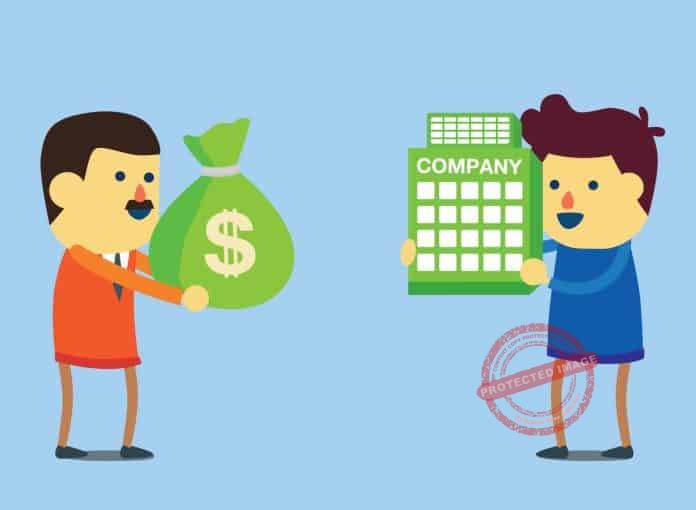Are you thinking of selling your business right now or in a few years? Whatever the case may be, you’ll need to be prepared with all the necessary information about the selling process.
It is a complicated process with lots of intricate details involved.
Above all, it is essential that you sell at the right time, to the right buyer, and for the right price.
Hence, read further to discover how you can sell a business at a profit.
But first, how do you know you’re making the right decision to sell a business.
When Is The Right Time & Situation To Sell A Business
Selling a business you’ve worked so hard to build over the years may not be something you would want to do under normal circumstances.
It may not sound logical to others.
The thing is, there are no general rules validating the right time to sell a business.
However, there are certain events or situations that may make selling your business the best option.
Some of these include;
When You Want To Expand Your Business But Don’t Have The Finances To Do So
You’ve probably identified viable opportunities for expansion in your business.
However, you lack the finances to scale the business.
You could sell some shares of ownership in the business to interested investors to get the required funds.
This simply means letting go of some ownership rights and control over the business in exchange for capital.
Overall, these investors will be considered your partners.
Depending on the type of partnership relationship, they’ll be entitled to a certain amount of proceeds from the business.
When There’s Too Much Risk Involved Than You Can Handle
Every entrepreneur knows that running a business has its challenges and risks.
However, there are different risk levels.
Some risks may be too costly but may offer huge potential rewards in terms of profitability for your business.
Likewise, some risks may be essential to move your business from one level to the other.
However, you consider these risks too costly to embark on.
You could sell your business to give it a chance to grow to its full potential with another owner.
When The Current Value Of Your Business Outweighs The Projected Value
You could also consider selling your business when you get high offers to sell from interested buyers.
However, this doesn’t mean you should jump in on every offer that comes up.
Instead, you need to evaluate the offer to ensure it outweighs the revenue that you can realistically generate in a few years.
Certain businesses experience a boom in their early years; afterward, they struggle to stay afloat.
This is true, especially for seasonal businesses.
So, suppose your thriving business is attracting potential buyers offering to buy the business at a price exceeding what you can make in the future.
In that case, you could consider taking the offer.
The Cost Of Operating The Business Has Become More Than You Can Afford
You can also sell a business off if you’re experiencing financial strain.
Specifically, selling it off may be a viable option when it gets too hard to pay your employees, pay for supplies, and keep up with other operational costs.
Retirement
Perhaps, the day-to-day running of the business and the stress of entrepreneurship has become too much for you to handle.
Likewise, you feel you’ve put in a lot of hard work to grow your career/business over the years, and now you just want to sit back, relax, and enjoy the rewards of entrepreneurship.
You could consider selling your business.
Boredom/Change Of Career/Business Interests
Not everyone has the tenacity to focus on one thing for too long.
Such people get bored easily.
Hence, they’re always searching for new and exciting opportunities to explore.
If this is how you feel about your business, you may be better off selling it.
If you’ve lost your passion and no longer feel excited to work on your business projects, it can affect your overall productivity.
Consequentially, it will also affect your business’ profitability.
Hence, rather than ruin a thriving business you’ve worked so hard to build over the years, sell it and reinvest the proceeds into a new venture that interests you.
Relocation
Peradventure you’re moving into a new town, city, or country and your business isn’t just the right fit for your new location, you could consider selling your business.
This is true, especially for brick-and-mortar businesses, and when your business only appeals to a specific market that you may not find in your new location.
Hence, selling your business could help you gather the resources you need to start a new business in your new location.
Health Issues/Incapacitation
Some unpredictable events can also force your hands to sell your business, even if you don’t want to.
One of these is frequent health issues that make you spend most of your time in health care facilities than you do in your business.
Likewise, severe accidents could have made it physically impossible to run and manage your business.
When this is the case, you should consider transferring ownership of the business to someone else by selling it off.
So, these are some of the situations that may justify selling your business.
Regardless of your reason for selling a business, you may encounter some roadblocks along the way.
Major Challenges Of Selling A Business
Finding Buyers
Finding the ideal buyers for your business may not be as easy as you think.
Some buyers may offer prices that are ridiculously below the actual value of the business.
In some cases, the buyer’s values and character may not align with your business values.
So, to prevent selling your business to the wrong person, you may just have to keep moving from one buyer to the other until you find the ideal buyer.
Confidentiality Issues
Sometimes, for confidentiality issues, you may need to withhold certain sensitive information from potential buyers.
This may make it difficult to promote your business to attract the right buyers effectively.
More importantly, there’s the risk of divulging sensitive information to your competitors disguised as buyers.
Deciding On The Right Selling Price
This may be one of the hardest parts of selling a business.
There’s the possibility of overpricing the business out of sentiment.
You’ve worked so hard to set up the business.
For this, you believe it should sell higher than its actual profit value.
This may make it difficult to get a buyer.
Managing The Selling Process And The Business
Pending when you get a buyer and transfer ownership of the business, you’ll still have to manage the business operations.
This is essential to sustain the market value of the business.
At the same time, you also have to actively promote and manage the marketing process to get an ideal buyer.
All of these can be demanding and overwhelming.
Nonetheless, since you’ve decided to sell your business, these are some of the sacrifices you’ll have to make to actualize your goal.
Moving on!
Let’s consider the important things to do before selling a business.
Things To Do Before Selling A Business; Important Preparatory Steps To Take
Evaluate And Access Your Business- Is It In A Selling Condition?
Before you put up promotions to sell your business, you need to know its market value.
This involves looking into the business assets, debts, marketing insights, cash flow, revenue, sales charts, and other related aspects.
This is because most buyers would want to know the potential profitability of the business before committing themselves to it.
Hence, do a thorough evaluation and assessment of the business to determine its chances of survival under the new buyer’s control.
Put Your Records Together
You need to make sure your financial, tax, and other important records are straight.
Again, this will be one of the important aspects potential investors may look into to validate their decision to buy your business.
So, check your records and make sure they’re all up to date.
Decide If You’ll Do It Alone Or Involve Experts
As we’ve previously established, selling a business is a complicated process.
So, you’ll need to decide if you want to handle all the complicated activities alone in addition to managing your business or get some help from experts.
There are several ways experts can help simplify the entire process for you.
For instance, a legal professional can help you draft the sales contract, NDA, transfer of ownership documents, among other things.
Likewise, you could hire a marketing professional to handle the promotions.
Similarly, you can also hire a business broker.
The broker can help you find potential buyers, promote the product, take care of negotiations and help you finalize the deal.
Overall, involving experts will cost you money.
However, it’ll be a worthy investment compared to the time and efforts you’ll spend trying to sell your business yourself.
Create The Ideal Buyer Profile
This step is necessary to streamline the potential buyers and help you find the right buyer.
So, you need to ask yourself what the right buyer for your business will look like to you.
You also need to keep the following in mind;
First, you’re not just selling a business.
You’re selling something you’ve worked so hard to build over the years.
Specifically, you’ve built a brand image, a reputation, and a legacy.
So, you need to think of who’s the best person to pass on all these to.
What qualities/values do they need to have?
Keeping all these in mind, create a buyer’s profile.
This may be necessary if you don’t care what goes on in the business after selling it to the new owner.
However, if you care about continuing your legacy, doing this will help you find the right buyer for your business.
Be Ready To Commit To The Process Until The End
Finally, you need to be sure you’re willing to commit to the entire process of selling your business until the deal is finalized.
Aside from the complex nature of the entire process, you’ll also have to deal with your emotions.
Specifically, the pain of letting go of something you’ve worked so hard to build over the years.
So, make sure you’re physically, mentally, emotionally, and financially ready before you make a move to sell your business.
How To Sell A Business Profitably
1. Get An Expert To Do Your Business Valuation
This is important to avoid selling your business at a loss or overestimating your business worth.
Both situations could be bad for you.
The first will leave you dissatisfied, while the other will make it difficult to find a buyer.
Hence, bringing in an expert to evaluate your business will help you accurately determine your business worth.
The appraiser will consider sales records, revenue, outstanding invoices, inventory, tax records, customer base, pending projects, and debts.
All of these will be documented in detail to reflect the true worth of your business.
2. Set Your Sales Price
Based on the appraiser’s analysis and evaluation, you can accurately decide on the right amount to sell your business.
It’s best to set your sell price at a point that’s reasonably above your cash flow.
Remember, setting it too high could chase potential buyers away, and putting it too low will leave you at a loss.
Set your sales price and decide how much you’re willing to settle for after negotiation.
3. Promote Your Business To Attract Potential Buyers
Putting your business out there on the market for sale can complicate things for you.
However, it is essential to help you find interested buyers.
Ideally, selling a business could take a few months and sometimes years to finalize the entire process.
Hence, pending when you finalize the sale, you’ll still have to keep the business in operation.
In the course of promoting your business for sale, you could stir up worry within employees, customers, and existing stakeholders.
So, while you’re thinking of ways to sell your business, you should be prepared to answer questions from concerned parties directly involved with your business.
You can promote your business by telling your friends, family, and close associates of your intention to sell the business.
Alternatively, you could consider listing your business for sales on marketplaces like bizbuysell.com, Shopify Exchange Marketplace, Empire Flippers, and other related platforms.
4. Screen Interested Buyers To Identify The Ideal Buyers
Perhaps you’ve decided to do the selling yourself instead of using a business broker to avoid paying brokers’ commission.
You’ll need to be careful to avoid falling into the wrong hands.
Not every buyer will come with a legitimate offer.
Some may come with the intention to swindle you.
Likewise, some may come with the intention to steal sensitive information/insight from your business.
This is why you’ll need to be extra cautious.
So, here are some precautionary measures you can take;
- Run background checks on interested buyers.
- Prepare and have them sign a non-disclosure agreement before relating any sensitive information.
- Have a legal professional oversee meetings and discussions where sensitive information will be shared.
- Also, compare potential buyers’ profiles with your ideal buyer’s profile you created initially.
Even if you’ve decided to use a broker, relate these concerns and ensure that they’re incorporated into the selling process.
5. Initiate The Deal & Start Negotiations
Negotiations would start once you or your broker have identified the ideal buyer.
The buyer may try to get you to sell at a price that benefits them the most.
However, don’t feel pressured to sell at a price below your business value.
Prior to the negotiations, make sure to be ready with your negotiation tactics so you can get the best deal for your business.
Overall, aim to settle at a mutually beneficial price point.
6. Finalize The Deal And Sign The Necessary Documents
This is a crucial part of the selling process, and it’s advisable to have a legal professional see you through this stage.
Now that you both have agreed on a mutually beneficial price point, it’s time to accept payment and transfer ownership.
You’ll need to sign certain documents like;
- Offer-to-purchase agreement
- Asset listings
- Transfer of ownership
- Bill of sale
- Security agreement, etc.
Ideally, the legal professional should draft these documents and guide you through signing them to prevent problems in the future.
Conclusion On How To Sell A Business
Many business owners sell their business as a viable exit strategy for their business for different reasons.
While there are no clear-cut rules stipulating the best time to sell a business, there are certain guiding principles that can help you sell at the right time.
We’ve established this above and outlined the exact steps you need to take to help you sell your business at a profit.
Let these tips guide you as you prepare to sell your business now or in the future.
Best of luck.








